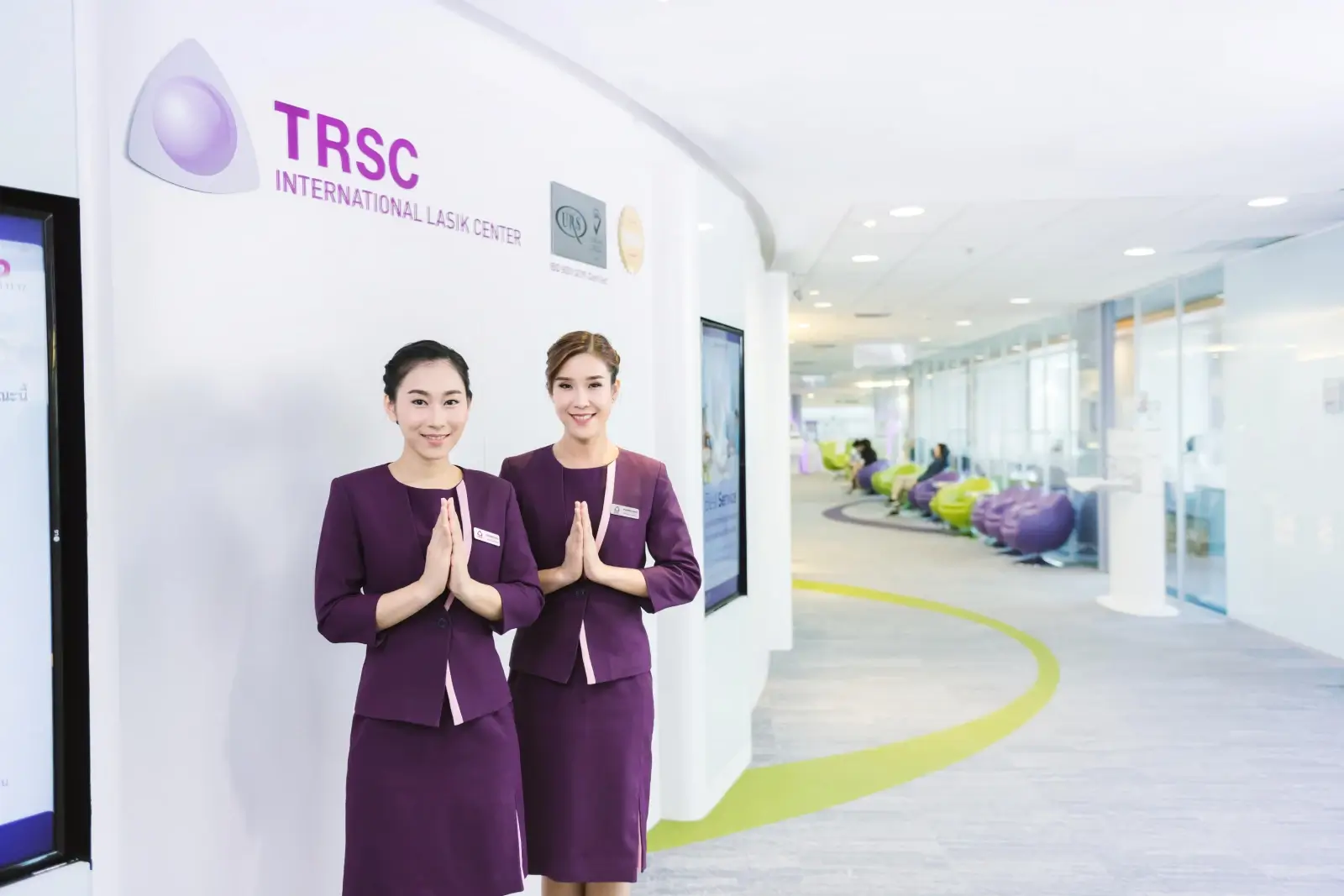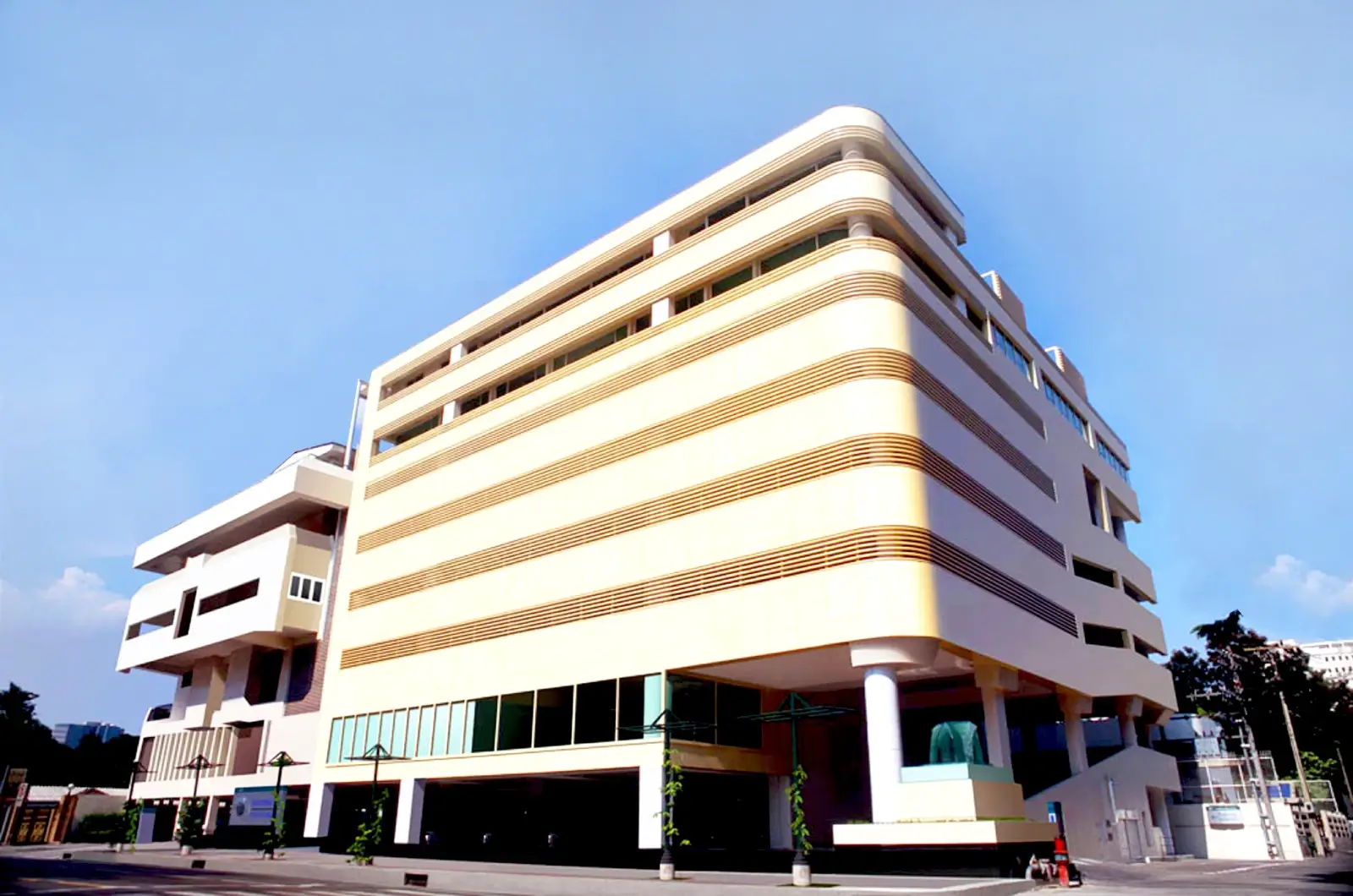在泰国经过审查和认可的医院获得世界一流的护理。
使用受过国际培训的外科医生和最先进的设施,最多可节省80%。
屈光角膜切除术(PRK)是一种有效的屈光眼科手术,用于矫正近视、远视和散光。在手术过程中,眼科医生使用激光重塑角膜,提高眼睛将光线聚焦在视网膜上的能力。许多寻求PRK眼科手术的人会考虑泰国,因为泰国拥有先进的医疗技术、经验丰富的外科医生和诱人的价格。
请注意,所提供的价格是估算值,可能会因各种因素而有所不同。此外,这些价格不包括机票或住宿。
所有价格均以美元为单位。
对于那些不适合LASIK的人来说,PRK是一个很好的选择。通常建议角膜较薄的人使用,因为它不涉及形成角膜皮瓣。取而代之的是,外科医生去除角膜的外层(上皮),然后使用准分子激光重塑角膜。PRK可以带来更清晰的视力,但与LASIK相比,恢复时间通常更长,更不舒服。与任何手术一样,患者必须了解潜在的风险和并发症,并与外科医生进行讨论。
比较选项
在泰国接受PRK之前,将进行全面的眼科检查,以确保您的眼睛适合该手术。在检查和手术前的几周内,您可能会被要求停止佩戴隐形眼镜,以免角膜形状发生变化。为您的外科医生提供详尽的病史,包括任何当前的药物也至关重要。
在 PRK 手术中,外科医生切除上皮,然后使用准分子激光重塑角膜,准分子激光会发出凉爽的紫外线。重塑过程结束后,将软性隐形眼镜放在眼睛上,起到绷带的作用,帮助上皮再生。
PRK手术后的恢复时间往往比LASIK手术后的恢复时间更长。上皮细胞通常需要几天到一周的时间才能再生,在此期间你的眼睛可能会感到不舒服或有沙砾感。视力通常在一周内开始改善,但可能需要几周甚至几个月才能完全稳定。建议患者遵循外科医生的术后指示,包括使用处方的眼药水来帮助愈合和预防感染。
在泰国,PRK手术的费用通常从每只眼1300美元到1,800美元不等。但是,价格可能会根据医疗设施、外科医生的经验和所使用的确切技术而波动。请记住,这些费用不包括差旅和住宿费用。
由我们的团队选择的符合我们严格的质量和安全标准的预先审查的设施

位于曼谷的TRSC国际眼视中心是一家领先的眼科手术中心,拥有超过28年的经验和超过10万例成功的眼科手术。它提供先进的技术、高技能的眼科医生和世界一流的设施,使其成为泰国SMILE Pro、Relex SMILE和其他视力矫正治疗的首选。

鲁特宁眼科医院由乌泰·鲁特宁教授于1964年创立,是泰国第一家专门从事眼科的医院。该医院有超过39名眼科医生,在泰国、加拿大和美国的机构接受过培训,涵盖所有眼科亚专科。鲁特宁被亚太白内障和屈光外科医生协会(APACRS)认可为卓越中心,拥有三个手术室、一个日间手术室和专门的儿科眼科中心

康民国际医院是位于曼谷的一家拥有580张床位的三级医疗机构,每年为来自190个国家的110多万名患者提供治疗。康民格勒成立于1980年,自2002年起获得JCI认证,在47个专科中心提供全面的医疗服务,拥有超过1,200名医生。该医院被《新闻周刊》评为泰国顶级医院,也是世界上最好的医院之一,以心脏病学、肿瘤学、骨科和先进的外科手术而闻名。

Praram 9 医院是曼谷一家拥有 300 张床位的私立医院,自 1992 年以来一直提供先进的医疗服务。该医院自 2010 年起获得 JCI 认证,因包括肾脏移植、心脏手术和脑部手术在内的复杂医疗程序而获得认可。它进行了超过1,000次肾脏移植,是泰国该专业的领先私立医院,并于2025年被《新闻周刊》评为泰国顶级医院中的第9位。
The cost of PRK in Thailand typically ranges from $1,300 to $1,800 per eye.
Recovery time varies by individual. While the epithelium generally regenerates within a few days to a week, full visual recovery can take several weeks or even months.
You should be able to fly a few days after PRK. However, always confirm this with your surgeon before making travel plans.
While PRK doesn't require hospitalization, it's advisable to plan a stay of at least 7 to 10 days in Thailand for the pre-operative consultation, surgery, and post-operative follow-ups.

.webp)